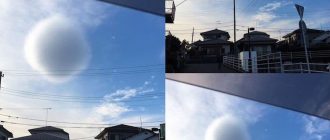
Plastics are a growing environmental problem, in part because they are very difficult to recycle. Now scientists have identified a microbe that could help recycle one of the toughest plastics.
The microbe is the bacterium Pseudomonas sp. TDA1, and it looks like it can absorb some of the chemical bonds that hold polyurethane-based plastics in place, a type used in everything from refrigerators to shoes.
Polyurethane does not melt when heated, making it difficult to break down, but Pseudomonas sp. TDA1 is able to metabolize some of the chemical components that make up this type of plastic.
“Bacteria can use these compounds as their sole source of carbon, nitrogen and energy,” says microbiologist Hermann Heipiper of the Helmholtz-UFZ Center for Environmental Research in Germany. 'This finding represents an important step towards the recyclability of difficult-to-recycle polyurethane products.'
This is a promising start for solving our problem of recycling bacteria-based plastics, but it is just the beginning. We need to know a lot more about the biochemical processes behind this metabolism before we start using Pseudomonas sp. TDA1 for plastic recycling.
Considering that more than 3.5 million tons of polyurethane plastic are produced annually, we are talking about significant volumes. It attracts manufacturers because it is lightweight and flexible, but when it is in a landfill, it can release toxic chemicals, including carcinogenic ones.
However, the use of bacteria is not our only hope to do something with the polyurethane waste. Scientists have also experimented with changing the way this type of plastic is made, potentially making it easier to degrade in the future.
We are also seeing a growing number of attempts to reduce the use of plastic, primarily – the less we rely on it, the less we need to produce and the less we have to send to landfills.
Hopefully, Pseudomonas sp. TDA1 may be involved in some way in the fight against hard-to-recycle plastics.
“Plastics after consumption are already a serious environmental problem and pose even more serious problems in the future,” the researchers write in their published article.
The study was published in Frontiers in Microbiology.






